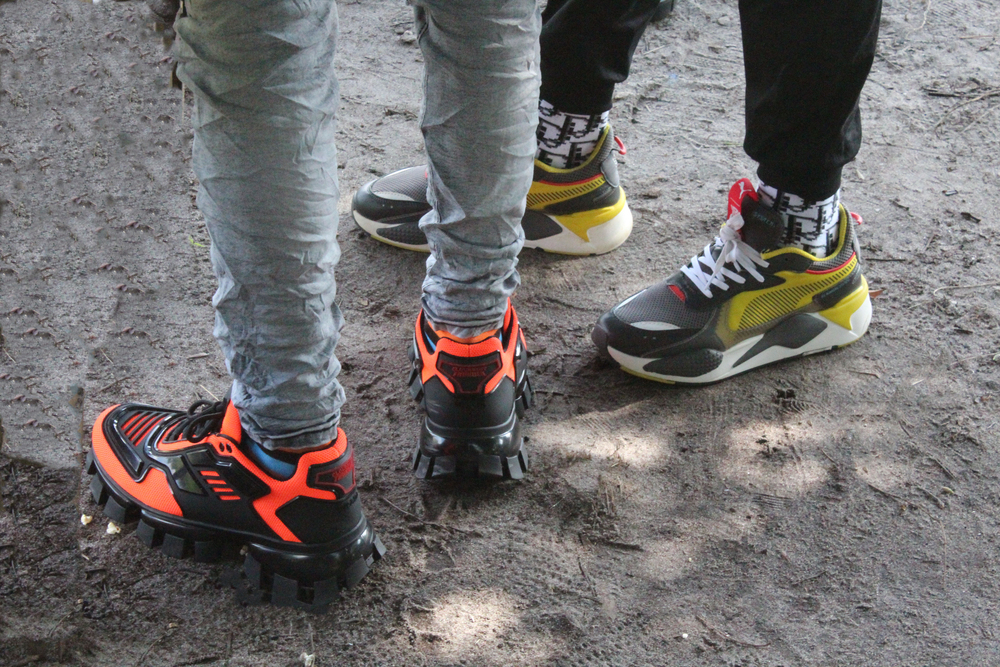Streetwear is not a dress code; it is a cultural force that introduces people to music, art and a way of life that visualizes identity. This is due to the fact that streetwear has a core that is self-expression. Whether it is the bold prints or has designer labels, streetwear items are wearable and hold the expression of independence.
But this fashion style did not just come out of the blue. A small group of pioneers took the fashion to the next level. They blended culture and creativity, producing a style that is still relevant today.
From underground to global culture
During the early years of streetwear, there existed some margins. From Artists, DJ’s and skater groups, many types of people adopted the appearance of an anti-mainstream style. From simple styles like oversized goodies to designer streetwear jackets, this style became the uniform for people looking to break out of the mold that didn’t fit them.
Since then, the style has adapted, grown and changed as it has spread worldwide. Fashion houses observed the emergence of bold jackets, sneakers and accessories that are bold and eye-catching. Beginning on the streets and skateparks have now evolved into a look that is represented on runways. Since its creation however the style has forever remained linked to music. The rap/ hip hop scene has carried on the legacy and created more and more legends in its field.
The artists who made clothing a canvas
Among this style, the first transformations to be made was the addition of art, as many saw normal clothing a blank canvas for artists to make their mark on. Artists did not confine creativity to the galleries, but instead it was splashed on tees, caps and jackets.
These were wearable artworks and enthusiasts amassed them the way they would limited-edition prints. Clothing became a narrative piece, and every design illustrated identity and innovation.
That legacy is still propelling the graphic tee market.
The DJs who brought style to the stage
Music has arguably been fueling fashion since time immemorial. During the late 80s and early 90s, the DJs started establishing trends not only in terms of clothes but also in terms of music.
Loosely fitting jeans, trainers and embroidered jackets were reflections of their performances. The style was picked up by the fans immediately.
Some of the streetwear fashion pieces they embodied include:
- Sneakers that tied outfits together.
- Oversized sweatshirts for movement.
- Bold outerwear that stood out in a crowd.
The skaters who made comfort cool
Skaters introduced raw authenticity. How? They did not follow fashion trends; they were dressing their world.
Snapbacks, ripped jeans, and flannel shirts became their go-to fashion pieces because their lifestyle required comfort and permanence. This authenticity was ironically impossible to resist.
Skating culture arguably influenced mass fashion. The credibility and grit of street wear were created through the influence of skateboarding.
The Hip-Hop voice of the streets
Streetwear gained authenticity from skate culture, but it was given scale by hip-hop. Rappers are arguably some of the pioneers of streetwear.
They had oversized jackets, bubble coats and caps that stood as the symbol of confidence and ambition. Their music videos had millions of fans exposed to streetwear culture.
Hip Hop fans did not just want the music; they wanted the appearance. The popularity of streetwear was a self-promoting movement with a voice of the streets.
The connector who bridged cultures
The connector, who merged art, skate and music influences, was the most influential pioneer. The combination of these worlds rendered them universal in streetwear.
It expanded the scope of the style through collaborations, while retaining its origins. Streetwear had evolved into a system, rather than a single look, which was what enabled it to survive.
Why their legacy lasts
You might be wondering, what is the significance of these pioneers? Well, they changed fashion by showing how daily items could be turned into identity tokens.
They also changed the way people think about status. From skaters carving out authenticity to hip-hop artists enhancing the style, both left their marks, which continue to influence fashion to this day.
Streetwear is eternal since it does not lose its soul as it develops. It is not about a city or one decade. It is about identity, expressiveness, and the bravery to wear what you are.

